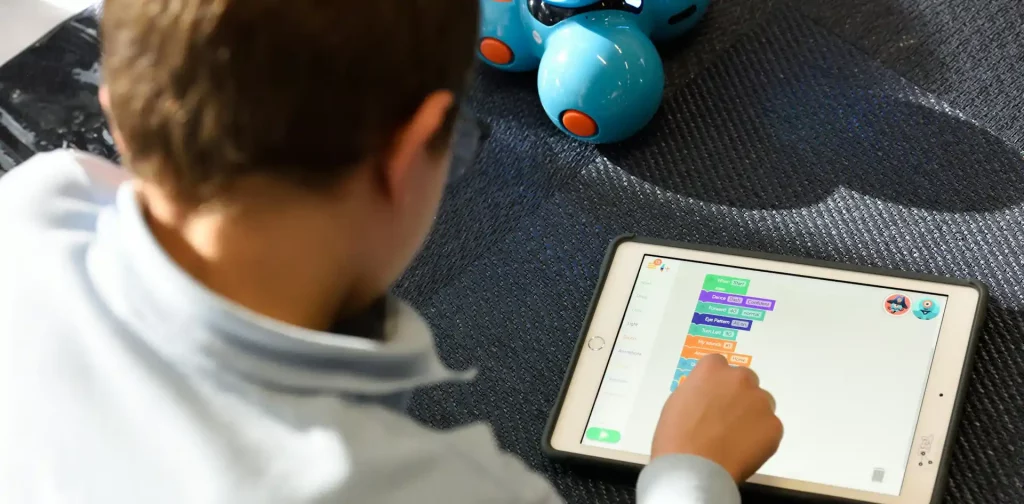Preserving Indigenous Languages Through Technology

Photo: stem.T4L on Unsplash
Indigenous languages are essential to the identities and heritages of many communities worldwide. Unfortunately, a long history of colonialism and the fast pace of globalization have made some of these unique languages extinct and put even more at risk of disappearing. Mamutjitji Story, an educational digital app using the Ngalia language and culture, blends ancient heritage and modern technology to help preserve and revitalize an Indigenous language in Australia.
The Decline of Indigenous Languages
In Australia alone, over 250 Indigenous languages were spoken before European settlement. Today, only around 120 of these languages remain, and many are at risk of disappearing. The arrival of Europeans in the continent led to the loss of many languages and dialects. Many speakers died, and others were forced to switch to speaking different Indigenous languages, English, or Creole.
The loss of Indigenous languages is a profound issue. Language is deeply tied to cultural practices, knowledge systems, and social cohesion. The decline of these Indigenous languages are driven by factors such as colonialism, globalization, urbanization, and lack of institutional support.
Furthermore, the younger generation often lacks fluency in their ancestral languages due to the dominance of global languages such as English. Without intervention, the erosion of Indigenous languages will lead to the loss of invaluable cultural knowledge and heritage.
Mamutjiji Story Educational App
Mamutjitji Story was launched in May 2024. It is an interactive educational app for children, using the Ngalia language and stories belonging to the Ngalia Western Desert Aboriginal People. The Ngalia language is extremely endangered, with only three known speakers remaining today.
Funded by the Government of Australia and New Zealand, two Ngalia brothers, Kado Muir and Talbot Muir, co-wrote the app. The three Muir brothers are the only people in the world who can speak or understand Ngalia. They utilize a local Dreamtime story about the life cycle of the antlion (mamutjitji), a common desert insect, to teach both Aboriginal and modern science concepts.
Ngalia, though endangered, shares similarities with Mantjiltjintjarra and Ngaanyatjarra, two Western Desert Aboriginal languages spoken by thousands of native speakers. The app aims to introduce young children to Ngalia in the hopes of preserving the language and encouraging more people to learn and speak it.
Innovation for Indigenous Preservations
The app’s unique blend of traditional knowledge with modern technology serves as an inspiration for Indigenous communities globally. Kado Muir emphasizes the significant impact technology can have on fulfilling the goals of Indigenous Peoples. He said, “Technology and innovation is essentially what Aboriginal people have been doing for 60,000 years. If you’re in an Indigenous community anywhere in the world, don’t be afraid of technology. Use technology for your own purposes.”
Still, to effectively preserve Indigenous culture and language, ongoing support from governments and institutions is essential. This support ensures the continuity of cultural preservation efforts, including funding for language revitalization programs, community-led initiatives, and educational resources to promote the long-term resilience and sustainability of Indigenous cultures and languages.
Editor: Nazalea Kusuma

Co-create positive impact for people and the planet.
Amidst today’s increasingly complex global challenges, equipping yourself, team, and communities with interdisciplinary and cross-sectoral insights on sustainability-related issues and sustainable development is no longer optional — it is a strategic necessity to stay ahead and stay relevant.


 Impacts of E-waste Pollution on Animals and Human Health
Impacts of E-waste Pollution on Animals and Human Health  Africa’s Solar Energy Surge: Why 2025 Was a Breakthrough Year
Africa’s Solar Energy Surge: Why 2025 Was a Breakthrough Year  Agrihoods: Integrating Farms and Urban Neighborhoods into Sustainable Communities
Agrihoods: Integrating Farms and Urban Neighborhoods into Sustainable Communities  Women in Waste Management: Asia’s Circularity Runs on Women. Its Policies Still Don’t
Women in Waste Management: Asia’s Circularity Runs on Women. Its Policies Still Don’t  Embracing the Business Value of Sustainability
Embracing the Business Value of Sustainability  American Farmers Call for Government Support Amidst PFAS Contamination
American Farmers Call for Government Support Amidst PFAS Contamination